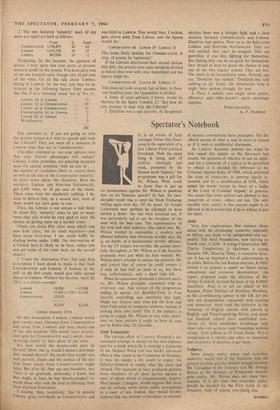Trial Transcripts
The curious affair of Ludovic Kennedy's un- successful attempt to obtain (at his own expense, and for a book which he is writing) a transcript of the Stephen Ward trial was hardly advanced when it was raised in the Commons on Monday. It was, no doubt, a bit much to expect the Solicitor-General to supply what the court had refused. The occasion at least produced protests from members of all three parties against a state of affairs which is unquestionably bizarre. Most people, I imagine, would suppose that there can be nothing secret about public proceedings- in a court of law. Indeed, they would further suppose that any attempt to introduce an element
of secrecy contradicted basic principles. Yet the official record of what is said in court is treated as if it were a confidential document.
As Ludovic Kennedy pointed out when he first raised this matter in the Spectator last month, the question of whether or not an appli- cant for a transcript of a trial is to be permitted to obtain it is decided by reference to the Criminal Appeal Rules of 1908, which restricted the issue of transcripts to persons legally in- terested, and by a modification of 1958, which added the words 'except by leave of a Judge of the Court of Criminal Appeal.' In practice, this means that some authors are allowed to buy transcripts of trials: others are not. The only sensible view, surely, is that anyone ought tosbe allowed to have transcripts if he is willing to pay for them.






































 Previous page
Previous page